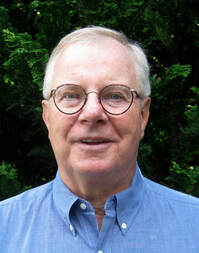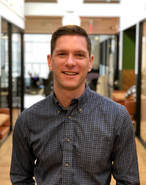 peter gow peter gow Back when I was a classroom teacher, the question I least liked hearing from my students was, “When will I ever need to know this?” My late spouse, who taught fifth grade, liked the query even less than I did. We were lucky. She was teaching foundational skills in reading, writing, and mathematics, content that arguably shows up in most people’s adult lives. Even if her kids don’t need to know the name of the builder of the steppe pyramid at Saqqara (part of her “Egypt unit”), they’ll still see pyramids and maybe remember a few things (if not why the Lower Nile is in the north, but, hey.) I was mostly a humanities teacher, and I came into the field when the old days of detailed grammar analysis and the memorization of lists of monarchs (with dates) were largely over. I could make the case for “critical analysis,” global awareness, and effective writing, a case that might have been harder to make for being able properly to identify and use the past perfect subjunctive, or the rigorous diagramming of sentences (which I admit I sort of enjoyed as a student). At least when I periodically taught Latin, the whole enterprise was understood to be patently irrelevant in the sense of future application, except for “It’ll help on your SATs.” Did it? Mihi vincet. I look back on this line of questioning and realize that I heard it less and less as I taught older students. “Why?” seemed ever to be on the tongues of my middle schoolers, but junior and seniors tended to absorb unquestioningly whatever they were being asked to learn. It occurs to me that all learning in the latter years of high school, no matter how obscure or filled with tiny motes of content to be memorized, is probably seen, like Latin, as having enormous if utterly unfathomable instrumental value: “You need to know it for college!” And probably, too, for that awesome job you’ll get after graduating from “a good college.” At the panel discussion that closed the Disrupting Education Symposium at Perkiomen School (an ICG Partner School in Pennsburg, PA) in November, the received truth of curriculum being relevant simply because it is what we have decided to teach came under fire from Ted Dintersmith (the producer of Most Likely to Succeed and the author of the recent What School Could Be) and others. I am guessing the other members of the audience were also a bit taken aback, for I imagine that just about every teacher finds themselves sometimes hiding behind a kind of shield that protects us from looking at much of the content we teach from the point of view of whether we’ve ever used it in adult life. Factoring polynomials? I just figure math folks, CPAs, and scientists do it all the time. Splitting infinitives? I always imagine that someone in the Grammar Police is reading whatever I write, and so I try, usually, to not not to do it. But factoring polynomials received unanimous acclaim from the panel for its notable absence from anyone’s adult experience, as did Coulomb’s Law—this from a panel that included two electrical engineers. No one dragged out “quantitative thinking” or “fundamental understanding” as justifications for having kids learn this stuff. Building “grit” through the process of mastery was about the best any of the panelists could come up with. (Or “up with which any of the panelists could come;” sorry, Grammar Cop.) I’ve written here before of relevance, but the points made at Perkiomen made me think about the concept in a new and clearer light. I don’t want to start a debate with those who believe that all the minutiae of their course content is essential to a meaningful future life, but I wonder how much of what we teach in the belief that it is somehow paradigmatic content could be completely—completely!—replaced by more practical, more authentically relevant learnings when embedded in far more experiential and problem-based kinds of curricula? As I listened to the discussion at Perkiomen I was challenged to reflect on my own responses to “When will I ever need this?” I wonder now if my high-minded (and slightly defensive) belief in what I was doing clouded my ability really to see the implications of the question and to give an honest answer based on my own real experience. Maybe, or maybe not. But I finally realize that it’s not a stupid or annoying question; at worst, it’s just a slightly clunky adolescent paraphrase of the real question, “Why does this matter?” At the risk of troubling your sleep, I invite you to ponder the totality of what you may be teaching and ask yourself, “Why does this matter?” There are solid answers, compelling answers, but let these answers lead you to deeper and more comprehensive ways of considering content. As we seek these fundamental perspectives, I believe, we can begin to discern hints and even outlines of new and more effective ways of conceptualizing and teaching what truly matters.
0 Comments
 Brad Rathgeber Brad Rathgeber Like many of you, I’ve been reading Michelle Obama’s wonderful new book, Becoming. I wanted to read the book for many reasons: I have degrees in history and American Studies and love first person accounts; I’m an admirer of Obama’s work, particularly her emphasis on youth leadership, healthy eating, and expanding opportunities for girls; and I’m a Washingtonian who frequents the same exercise classes. What surprised me was that I should have gone into reading Becoming with a different primary purpose: because of her self-reflection on her time as student, as a mother of two girls, and as a First Lady who spent as much time as she could with kids. Michelle Obama might not call herself an extraordinary educator, but she is. I’m not going to detail every lesson for educators in Becoming, in large part because I think that everyone should read the book. Instead, let me reflect on two themes that come back time and again. High Standards and High Empathy Obama’s first teacher was her great-aunt, Robbie, an exacting piano teacher who lived downstairs in their house. Robbie made the young Obama study piano by-the-book, in a way that drove Obama crazy. In spite--or perhaps because--of that, Robbie also instilled in Obama how hard work and dedication led to success: “As much as I found Robbie to be snippy and inflexible, I’d also internalized her devotion to rigor” (Obama, Michelle. Becoming, Crown. p. 15). And, Robbie was there in moments of need: “With a tight throat and chugging heart, I looked out to the audience, trying not to telegraph my panic, searching for the safe harbor of my mother’s face. Instead, I spotted a figure rising from the front row and slowly levitating in my direction. It was Robbie… But here in my moment of comeuppance, she arrived at my shoulder almost like an angel.. Without a word, Robbie gently laid one finger on middle C so that I would know where to start. Then, turning back with the smallest smile of encouragement, she left me to play my song” (Obama, p. 16). Later, Obama would notice this same level of high expectations and care throughout her own schooling at Bryn Mawr Elementary, Whitney M. Young High School, and Princeton; and in other educators she encountered, noting educators at inner-city Chicago high schools who extolled positivity and championed their students who were facing extraordinarily hard odds (Obama, p. 385). The best teachers know that students need both high expectations for success and a deep empathy to understand when help, support, guidance, and exceptions to the rule are needed. I’ve been talking with my colleague Lisa Damour a lot this fall, as we prepare to offer a course about her upcoming book Under Pressure next year. Lisa reminds me often that high performing students and particularly high performing girls (like Michelle Obama was) hold themselves to extraordinary expectations -- a perfectionism that can never be reached but is sought. Teachers working with these students must be particularly empathic to situations when those students need an excuse from holding themselves to that high standard -- to those moments when they try to lean in, and either can’t or shouldn’t. As Obama said recently to an audience in Brooklyn: “that shit doesn’t work all the time.” Battling Impostor Syndrome Throughout the book, Obama repeats a question that has nagged her throughout her life: am I good enough? The first time she asks this question is in high school, attending a top-flight magnet school in the city of Chicago. As educators, we know that even our top students have impostor syndrome (and that this is particularly prevalent among high-performing girls, as Lisa Damour reminds me). Obama kept asking that question throughout her time as First Lady, though by then she was able to recognize it as an expression of our society’s assumptions about women and people of color. With her new platform, she was determined to help the next generation understand their intrinsic power and potential--to stop asking the question, and to know the answer instead. "I wasn’t fully prepared, though, to feel what I did when I set foot inside the Elizabeth Garrett Anderson School and was ushered to an auditorium where about two hundred students had gathered… There were girls in hijab, girls for whom English was a second language, girls whose skin made up every shade of brown. I knew they’d have to push back against the stereotypes that would get put on them, all the ways they’d be defined before they’d had a chance to define themselves. They’d need to fight the invisibility that comes with being poor, female, and of color… Looking up at the girls, I just began to talk, explaining that though I had come from far away, carrying this strange title of First Lady of the United States, I was more like them than they knew.. Speaking to those girls, I felt something completely different and pure—an alignment of my old self with this new role. Are you good enough? Yes, you are, all of you" (Obama, pp. 319-320). Our students, perhaps most especially our best students, ask themselves “Am I good enough?” all the time. Obama reminds us that we can’t remind our students enough that they are. “I’d been lucky to have parents, teachers, and mentors who’d fed me with a consistent, simple message: You matter. As an adult, I wanted to pass those words to a new generation” (Obama, p. 383). Teachers express this to their students all the time. And, more and more schools are teaching students about imposter syndrome and its nefarious related cousin, stereotype threat, in order to help arm students with the knowledge to combat these thoughts and understand their significant worth and value. |
Don't miss our weekly blog posts by joining our newsletter mailing list below:AuthorsBrad Rathgeber (he/him/his) Archives
July 2024
Categories |

 RSS Feed
RSS Feed